Italian papyrologist Professor Graziano Ranocchia claims that he was able to establish the exact burial place of the Greek philosopher Plato.
The results of his research are based on a new reading of the Herculaneum papyri, deciphered using modern technological tools.
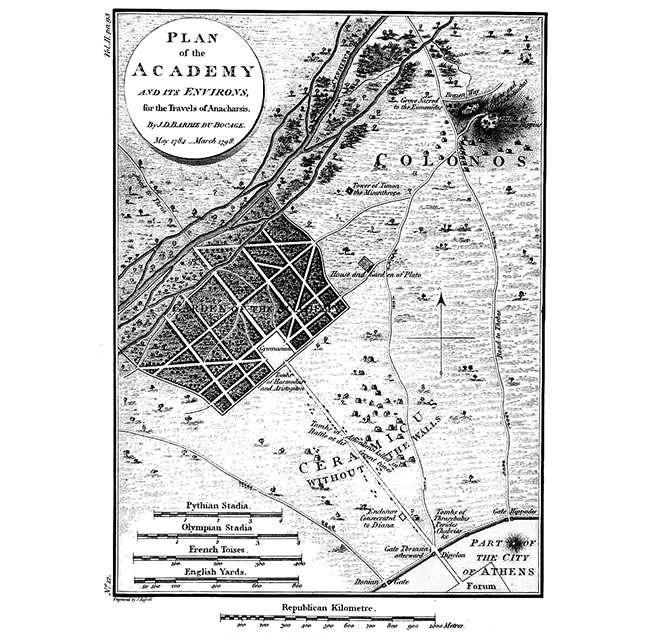
According to Ranocchia's findings, Plato was buried in the “Academy” that bears his name in Athens, in a garden next to the “temple of the muses.”
Presenting the results of his research, expert Ranocchia from the University of Pisa, who worked on the project, said:
“We knew that Plato was buried in the Academy, which was very large, but thanks to the scans we now know that he was buried in a garden in a private area, next to the sacred temple of the Muses.”
This important discovery was made possible by a new reading of a papyrus written by the poet and Epicurean philosopher Philodemus, containing the history of Plato's Academy.
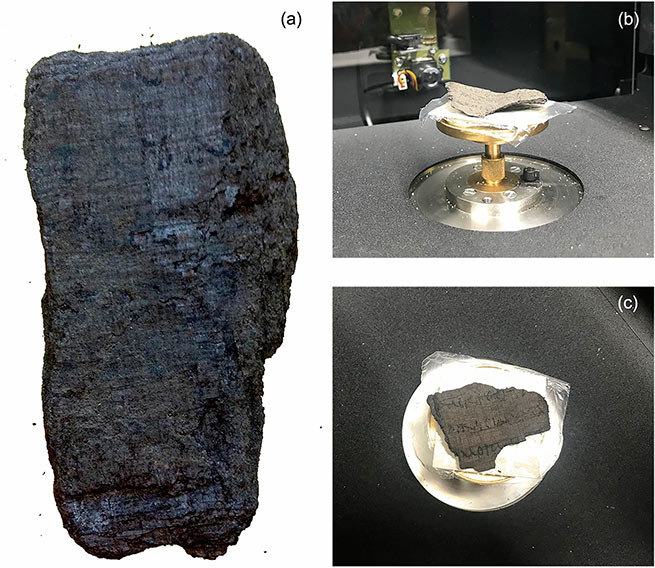
The Herculaneum Papyri are more than 1,800 papyrus scrolls discovered in the 18th century at the Villa of the Papyri at Herculaneum, near Naples. They were covered in ash when the villa was swallowed up by the eruption of Mount Vesuvius in 79 AD.
Ranocchia and his team “read” with a bionic eye that was able to discern this new and useful information. Work on reading the papyrus began three years ago and will be completed in 2026.
The bionic “eye” detected a thousand more words than were found in the previous attempt to decipher the text in 1991, representing 30% of the text.
The Italian researchers added that, based on the new reading, “It turns out that Plato was sold into slavery back in 404 BC, when the Spartans conquered Aegina, or, conversely, in 399 BC, immediately after the death of Socrates.”
Until now, this event has always been attributed to 387 BC. e. and to the period when Plato was in Syracuse, Sicily.
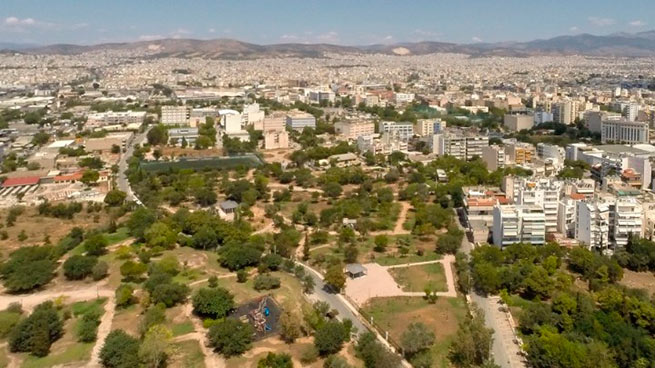
Plato Academy in Athens
At the age of 40, Plato (427 – 348 BC) founded a philosophical school – the Academy. It was located in Athens, on a plot of land in the grove of Hekademos or Academus, named after the Attic hero of Greek mythology.
Many philosophers studied at the Academy, the most famous of whom was Aristotle.
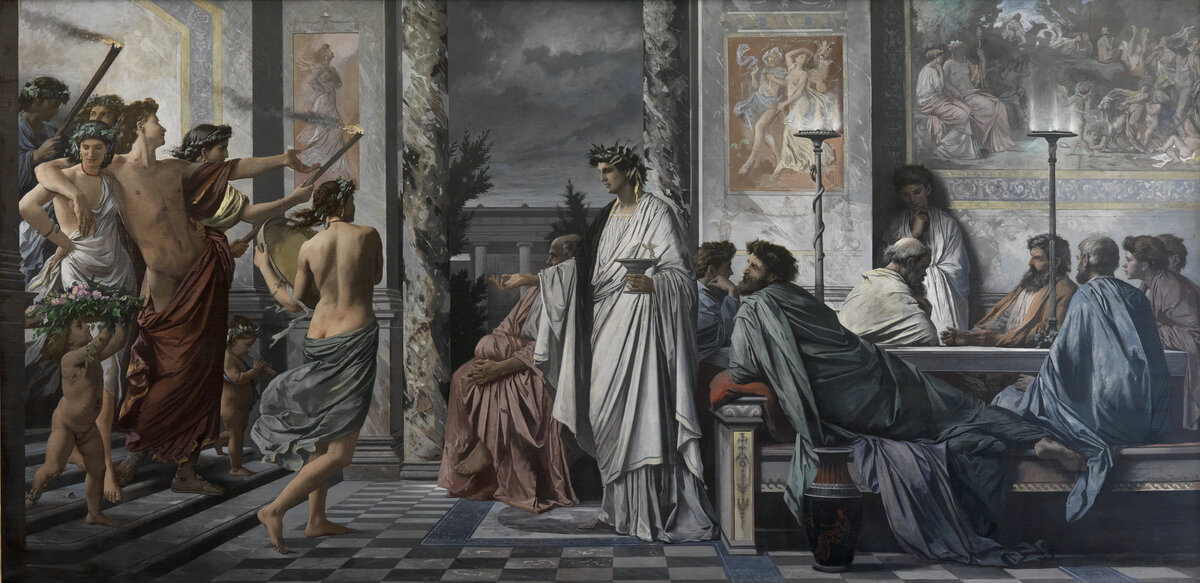
The Academy accepted people from all over the world, and what is typical is that training was absolutely free. Academy students abstained from meat-eating, carnal love, and voluntarily limited themselves in sleep. The life together of mentors and students made it possible to influence not only with words, but also with personal example. Everyone listened to Plato’s “dialogues” together, discussed them, and composed them themselves. Women's education was encouraged, but, according to the strictest laws, they were forced to appear in public places in men's dress.
The Academy existed for more than nine hundred years. All the celebrities of the ancient world from all countries sought to appear in that significant place. Suffice it to say that at one time it was visited by Xenocrates, Aristotle, Heraclides and Alexander the Great. And the famous Cicero was a student of a graduate of the Academy.
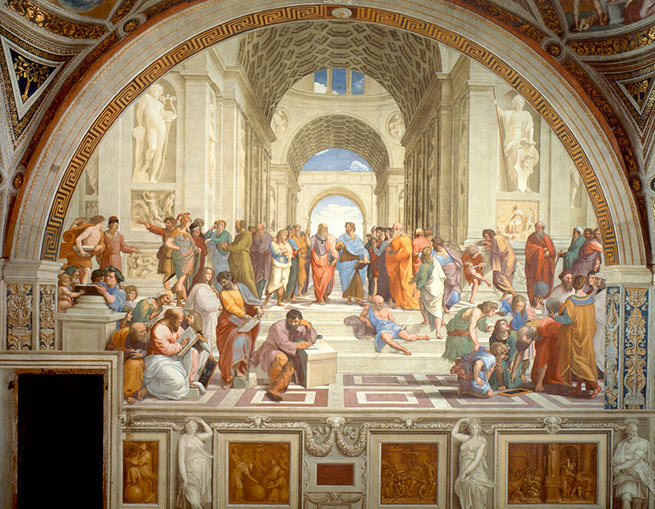
In 86 BC, during the Mithridatic Wars, the Roman Emperor Sulla laid siege to Athens. At Plato's Academy, the premises were destroyed, the academic garden was cut down and, worst of all, the library was destroyed. But the Academy still existed until, in 529, another Roman Christian emperor, Justinian, ordered it to be closed due to pagan ideas and traditions. The remaining scientists were forced to leave for Persia, to Baghdad. In the Middle Ages, during the revival of Platonism, Cosimo de' Medici established the Platonic Academy in Florence.

Today, only a few marble beams and a couple of stone foundations remain from the Academy’s buildings. There is still a dense, shady park here, where pensioners with dogs and mothers with baby strollers walk. But the air here is special. The soul trembles from something, the noise of leaves resembles a whisper. Whispers of sages and great people who made history.







More Stories
In Symi, Antikyra and Arachova, barbecues started smoking: Greeks celebrate Easter on a grand scale
History and traditions of Easter
Greek journalist acquitted by court for uncovering Holy Fire “hoax”